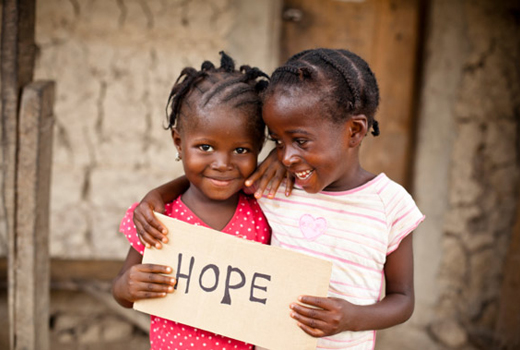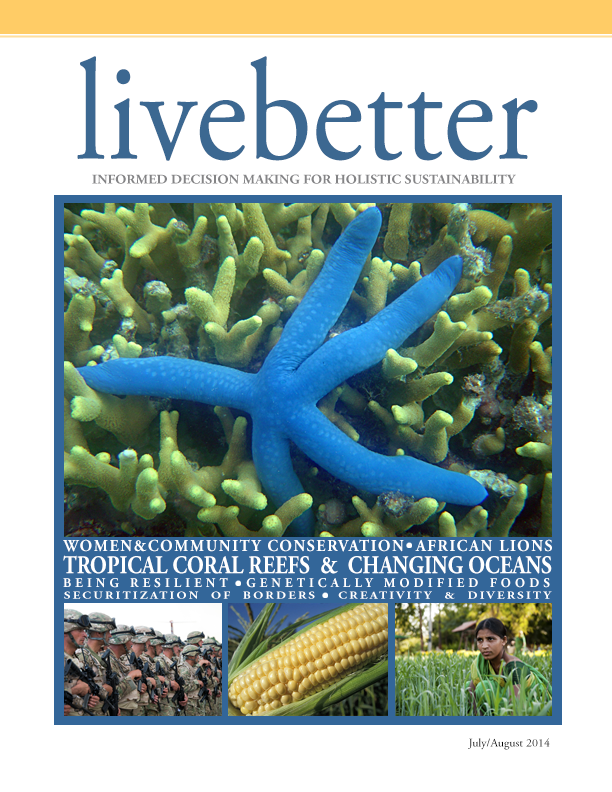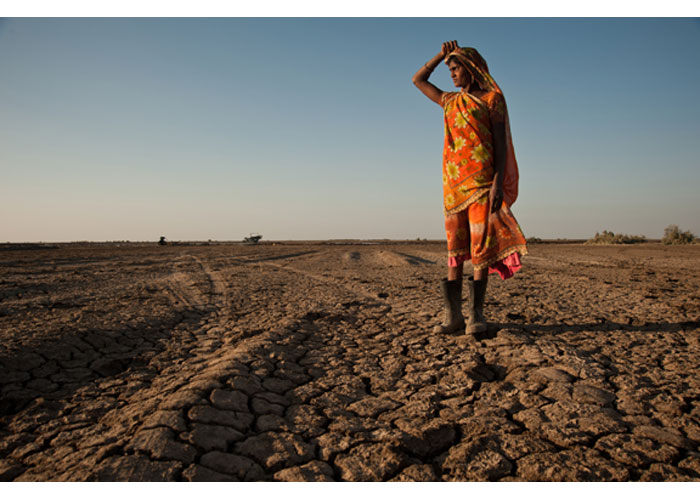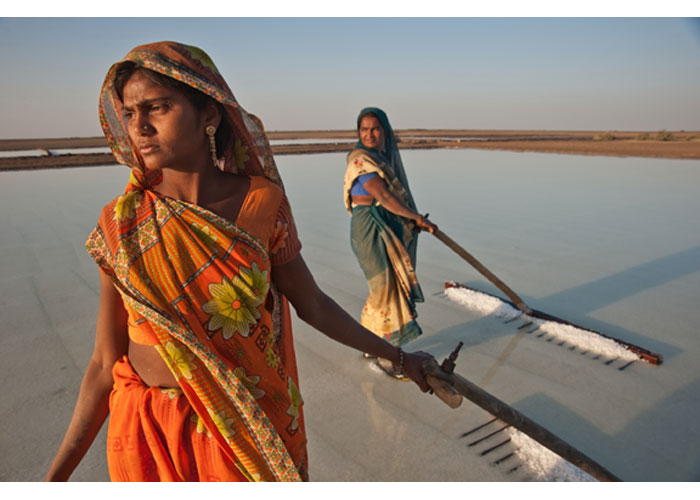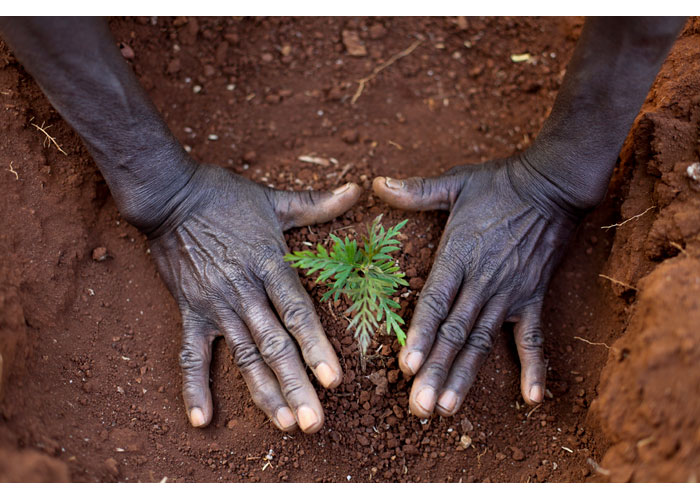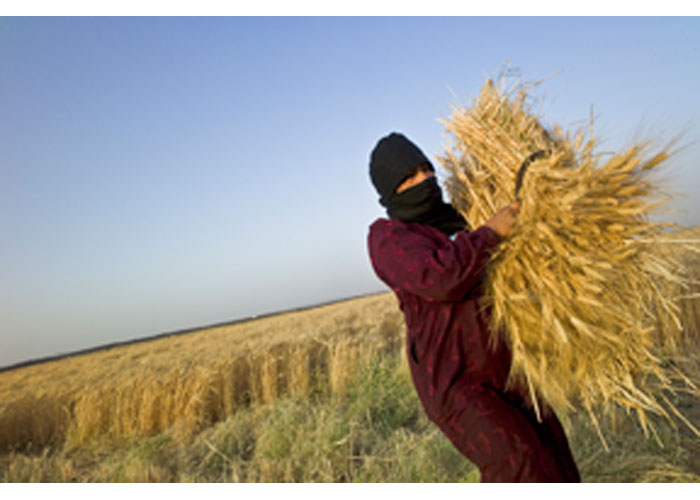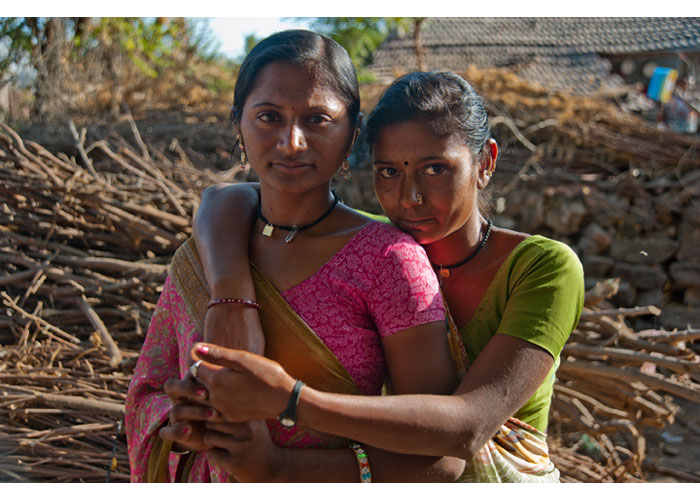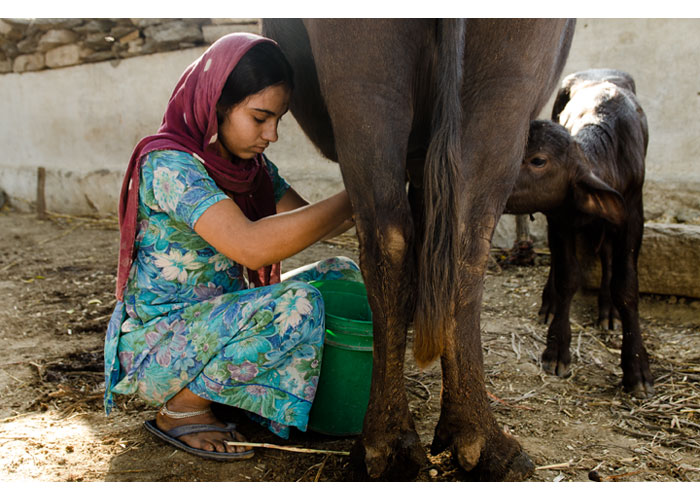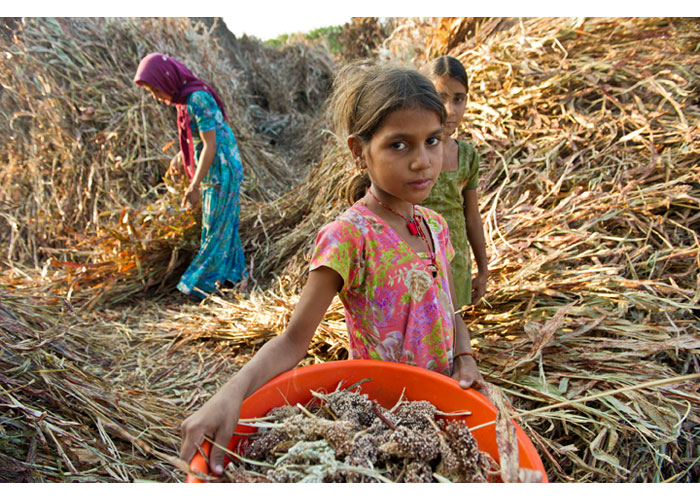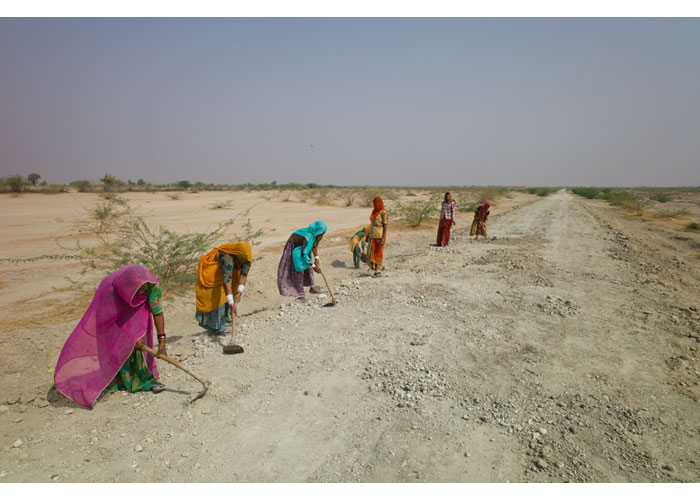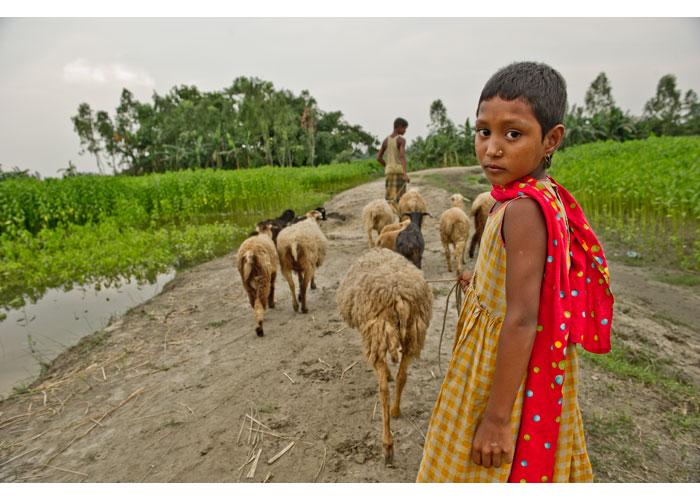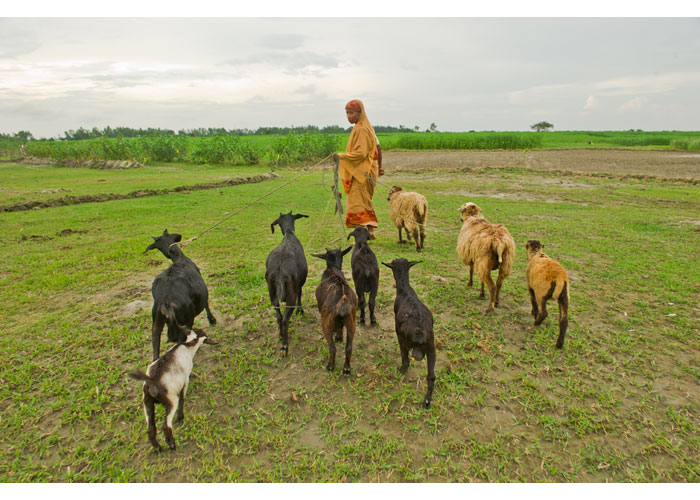Africa Partnership Station: Building Capacity & Enduring Friendships
Africa, with its one billion and counting population, its vast natural resources and its untapped human potential, has the power to assist the world economy, to become a model for equitable development and to aid world stability. This potential, unleashed for the common good, could bring about a beneficial change in the world order. However, this same potential has equal power for destruction on a global level. With this in mind, consider the effect Africa has on the rest of the world and the effect the rest of the world has on Africa:
- According to the 2010 Marine Resources Assessment Group West Africa Regional Fisheries Project Final Report, Estimation of the Cost of Illegal Fishing in West Africa, illegal fishing costs sub-Saharan Africa up to US$1 billion per year.
- According to a 2010 Council on Foreign Relations report of the 49 successful maritime piracy hijackings in 2008, 42 occurred off the coast of Somalia. Some experts suggest the global cost of piracy could range as high as US$16 billion per year.
- According to a 2009 Special Report by the United States Institute for Peace, “The exact amount of oil stolen per day in the Niger Delta is unknown, but it is somewhere between 30,000 and 300,000 barrels. The loss to the Nigerian economy from illegal oil bunkering between 2003 and 2008 totals approximately US$100 billion.” “Blood oil” not only harms Nigeria’s economy, but it is fueling a long-running insurgency “that undermines security in the Gulf of Guinea and adds to instability on world energy markets.”
- According to the 2011 United Nations Office on Drugs and Crime (UNODC) Research Paper, The Transatlantic Cocaine Market, around 13 percent of cocaine transiting to Europe in 2009 was trafficked via West Africa, which represents a volume of approximately 21 tons. Europol regards West Africa as one of the three main cocaine routes to Europe, with a minimum 35 percent of these drugs trafficked via the maritime environment.
- According to a 2007 European Centre for International Political Economy briefing note, “Africa’s relative performance in the global market has reached drastically low levels in the past 30 years.” In fact, the continent’s overall growth in trade is “far below the growth for other developing regions. Deteriorating world trade performance means opportunities lost. The World Bank estimates that Africa’s decline in trade represents a loss equivalent to US$70 billion annually – five times the US$13 billion received in aid and 21 percent of GDP.”
Clearly, what happens in Africa impacts the rest of the world, and Africa’s maritime environment is integral to what happens to the continent as a whole. Why does maritime security matter? The U.S. Navy, probably the world’s expert in maritime matters, points out that “maritime security is essential for global stability because development ashore relies on governance at sea. There is a recognized relationship between maritime security, maritime governance, development, prosperity, stability and peace,” which is why U.S. Naval Forces Africa is committed to their recently developed and increasingly successful Africa Partnership Station (APS).
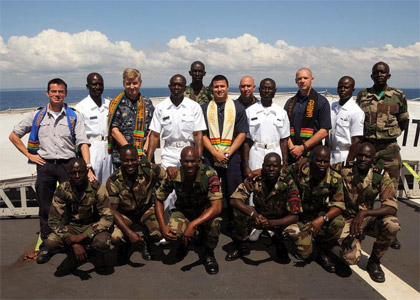
U.S. Navy photo by Chief Mass Communication Specialist Jason Morris|Maritime professionals from Ghana, Senegal and Sierra Leone pose with their maritime law enforcement instructors from the U.S. Navy, U.S. Coast Guard and their Belgian navy interpreter.
“We feel there’s so much being done here in Africa, but, unfortunately, it doesn’t make the front page of the New York Times because it doesn’t have the awareness globally that it deserves. Quite frankly, we’re talking about a continent with one-seventh of the world’s population and 20.2 percent of the world’s landmass, and a region that’s exporting oil to all corners of the globe. To put things into perspective, if you look at the 48 states within the continental U.S. and overlay them from the standpoint of square miles, they would fit in the northern part of Africa from the Maghreb to the Sahel – essentially from Somalia to Morocco. What’s left is the entire sub-Saharan area of the continent. It gives you an appreciation of just how large Africa is. It’s ripe for development and ripe for us to do coalition building as we help Africans develop their economy,” explains Rear Admiral Kenneth “K.J.” Norton, U.S. Naval Forces Europe-Africa Deputy Chief of Staff for Strategy, Resources and Plans (N5/N8).
For Norton, a primarily West Coast Sailor who spent all his previous deployments in the Pacific and Indian Oceans, being part of U.S. Naval Forces Africa presented a steep learning curve. But, what he has learned in the past 10 months in his new duty station is just how important Africa is to the U.S. and the world economy. And, U.S. Africa Command (AFRICOM), the sponsor of Africa Partnership Station, is not the only organization that understands this.
“When we look at Africa Partnership Station in 2012 – and I give a lot of credit to Captain Sue Dunlap; U.S Naval Forces Africa director, Africa regional engagement group; and her team – we have the United Kingdom, Brazil, France, Italy, Portugal, Belgium, the Netherlands, Spain, Denmark and Germany participating. They all want to help implement and develop the maritime security forces on this continent. So, these are very exciting times for us,” comments Norton.
The U.S. Navy must build partnerships not only with mature maritime nations but also with developing ones because, according to the Admiral, “no one can do it unilaterally anymore; no one has the resources. So we must learn how to work together, play together and continue to do operations and exercises together.”
Although Africa Partnership Station started about five years ago, it only came to fruition in 2008. In 2007 it was in concept form only, and the Navy started, explains Norton, “with our ‘newspaper boy route.’ If you can imagine a kid on a bike with a bunch of folded-up papers, we were sending a ship to Africa touching countries as we went by, tossing the paper on the driveway or front steps and not staying long. We had about 16 port visits in those days; we had a smaller staff, and we only had about 10 African nations and a few European nations that also participated.
“We started to develop in 2009. We had six major engagements and developed annual exercises. Nineteen countries were involved, and it was gaining momentum. Up until 2011, we were going fewer places but staying longer. Now we’ve implemented our ‘hub and spoke’ concept with people permanently assigned to specific areas. We have Captain David Rollo, a regional officer in Abuja, Nigeria, working in the Gulf of Guinea, and we have an officer deploying to Mozambique in the Tanzania area. We’re also sending mobile training teams to Ghana and Nigeria to train their sailors in developing maritime security efficiencies. Each training team will be there for more than one month,” explains Norton.
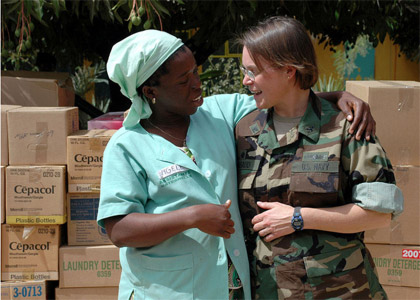
U.S. Navy photo by Mass Communication Specialist 2nd Class David Holmes|A Vivre Ensemble orphanage staff member thanks Capt. Cynthia Thebaud, commander of Africa Partnership Station, after a team of APS members delivered donated medical and child care supplies.
Africa Partnership Station 2012 was “kicked-off” on February 14, 2012 in Lagos, Nigeria, which was the first port visit. The USS Simpson, a guided-missile frigate deployed independently on behalf of APS’ Africa Gulf of Guinea operation, will culminate her mission with two exercises – one in the Gulf of Guinea (Obangame Express) and one in West Africa (Saharan Express). USS Simpson will then come through the Straits of Gibraltar into the Mediterranean to finish her tour with the “Phoenix Express” exercise with North African and Southern European countries.
“She’s going to be very busy, but that’s what we do. Later this summer we’re going to have LPD (Landing Platform Dock) USS Fort McHenry and HSV-2 (High-Speed Vessel) Swift – a catamaran. USS Fort McHenry will have Marines onboard and will be working the western Africa Gulf of Guinea area. The Swift has both civilian mariners and U.S. Navy Sailors onboard and will also be dedicated to APS. So, we have a very robust program this year, and we’re anxious, quite frankly, to get it going,” explains Norton.
Unlike some previous U.S. military engagements with primarily Islamic nations, APS has been welcomed with open arms. Aside from the fact that they have to be invited in, the U.S. Navy continues to adopt humanitarian-and education-focused solutions to regional areas that could become hotspots for future conflict. According to Norton, the education APS is providing is one reason African nations are sending out the “welcome wagon.” Another is the U.S. Navy’s commitment to help increase their capabilities to monitor territorial waters on their own.
Norton explains: “Many of these countries were ground force-centric when it came to building their military, and, yet, their economies are so dependent on maritime trade. They were losing billions of dollars and encountering significant challenges when it came to illegal fishing, fuel bunkering, piracy, illicit trade, narcotics trafficking, illegal immigration and environmental degradation. We’ve been helping them build capacity and capabilities so they can police not only their own territorial waters but also their economic exclusion zones. Now they’re realizing economic benefits from these maritime actions as well as reduced conflict. So, we’ve helped overcome their sea blindness.”
The Admiral comments that although the African maritime security forces usually understand the importance of maritime security, politicians sometimes do not because “it’s a zero sum game.” More money into navies means less money into ground forces, which is why politicals are sometimes reluctant to share the cost to make maritime improvements that benefit all countries. Norton reiterates that “sometimes we say ‘politics end at the shoreline.’ This is because we’ll have countries that aren’t necessarily friendly around their land borders working shoulder-to-shoulder at sea to combat transnational criminal organizations, which are poaching or trafficking humans and narcotics. Such operations are in the common welfare of all countries. So, it’s a unique balance out there.
“Even at my level as a rear admiral in the U.S. Navy, I do staff-to-staff talks all the time with foreign maritime personnel. And, quite frankly, it comes down to a ‘sailor is a sailor’ because we’re sailors first and foremost. Regardless of the flag we fly under, once we get out into international waters, it seems like everyone is participating in the international rule-of-law and International Law of the Sea.
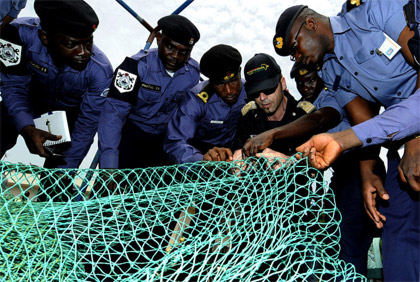
U.S. Navy photo by Mass Communication Specialist 1st Class Martine Cuaron|Italian navy Lt. Federico Panconi, aboard USS Gunston Hall (LSD 44), shows a properly constructed fishing net to Nigerian and Ghanaian sailors as part of an APS fisheries workshop.
So, if there’s someone in distress, if there’s ever a requirement to lend assistance, it’s almost a race of who can get there first, regardless of which flag is being flown in the aft-end of the ship. I’m certainly proud of my naval service; it’s been more than 30 years so far, and I can tell you definitively that things are a lot simpler at sea.”
APS is about building maritime security capabilities; it’s about building capacity and capabilities with African and other international stakeholder nations. And, it’s about understanding and participating in the common maritime ties that bind all countries together. It’s also about humanitarian assistance, which is why Navy Medicine is an important part of Africa Partnership Station. Termed “Medical Civic Action Projects” or “Medcaps,” this component provides services like inoculations and veterinary care. However, the bottom line is still, according to Norton, “building capacity in these countries so nations can have a medical response that’s organic to their own country. When we set-up and plan for these engagements, we have something similar to a Chinese menu that we offer participating African nations. We say, ‘This is what we can offer you as far as training and capability.’ Certainly, building medical capabilities is an important part of our offerings.
“We’re pretty much engaged with all maritime nations in Africa now. We’re concerned for 2013 and beyond that we may not have the 24/7 grey hull coverage we’ve had in the past few years. This is why we’re instituting the ‘hub and spoke’ mobile training teams I mentioned earlier. We like the grey hulls because, quite frankly, they provide a visible show of support and physical presence. As an example, when USS Simpson pulls into Casablanca, the Consular General and senior maritime security officers will be present, and we will have a reception. That’s an important part of Africa Partnership Station as well – the senior leader engagement aspect of building relationships. I’m a Sailor, and I know it’s going to sound corny, but Sailors love to talk about ships. For APS, our most important ‘ships’ are our partnerships, relationships and enduring friendships. They’re every bit as important as the grey hulls.
“From a philosophical and humanist point of view, Africa Partnership Station is very important to me personally because I know we’re saving lives. As a point of comparison, I had the opportunity to be the captain of one of our aircraft carriers during a humanitarian assistance/disaster relief mission in the Philippines. This was back in 2008 when one of the typhoons went through there. I was on my 8th long deployment, so I had been on many missions and had done many different things. But to me, personally, I knew I was saving lives so that became the most important thing I’d ever done in my Navy career. I feel the same way about Africa Partnership Station. We’re building capacity there. I know we’re saving lives with our medical capabilities program, with helping out with maritime security, with allowing countries to take control of their fisheries so they have plenty of food in their fish markets for a continent that needs it – a continent with more than one billion people, many of whom are food deprived. I’m very proud of what we’re doing as the Navy component of U.S. Africa Command.”
Norton explains that APS is a heart-to-heart experience. It’s about one person reaching out a helping hand to another in need. He says it is an “incredible experience. I have pictures, and you see these people who are just exuberant about the engagements going on down there. We don’t get any of this ‘Yankee go home.’
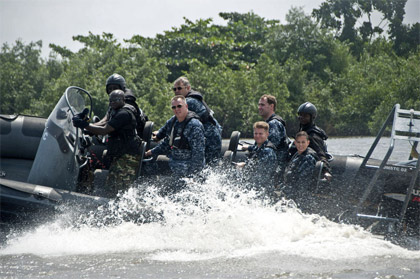
U.S. Navy photo by Mass Communication Specialist 3rd Class Ian Carver | Rear Adm. Kenneth J. Norton, along with other U.S. Navy personnel, ride with a Nigerian visit, board, search and
seizure team during Africa Partnership Station West.
It’s just the opposite; they ask, ‘Can you come? Can you stay?’ And, it’s because we’re offering an open palm of friendship, not a closed fist. I like to think the precept already exists of a global thought process that understands what the U.S. Navy is all about because we work the full spectrum from humanitarian assistance and disaster relief to winning wars.”
One out-of-the-box component of Africa Partnership Station is the United States Coast Guard. Many people do not realize that the U.S. Navy has no law enforcement authority as predicated by the U.S. Constitution. As such, according to the Coast Guard, it is “the nation’s leading maritime law enforcement agency and has broad, multi-faceted jurisdictional authority, given in 14 USC 2. In addition, 14 USC 89 authorizes Coast Guard personnel to enforce federal law on waters subject to U.S. jurisdiction and in international waters, as well as on vessels subject to U.S. jurisdiction (including U.S., foreign and stateless vessels).” Regarding APS, the Navy brings the Coast Guard out to help coalition forces or partnership countries in their law enforcement efforts, whether that pertains to bunkering fuel, stealing fish, dumping or other illegal activity.
Norton explains that they “have a very strong partnership with the Coast Guard; they’re integral to Africa Partnership Station. You’ll hear about ‘AMLEP,’ which stands for ‘African Maritime Law Enforcement Program.’ This is another offering from our APS Chinese menu of services for any country wanting to build upon their law enforcement capabilities. The Coast Guard has been willing, and quite able, to assist the U.S. Navy wherever we’ve required their support for Africa Partnership Station.
“On a similar point, we’d be ineffective in building capabilities and capacities with African nations without the strong support of the Department of State, our country teams, the ambassadors, the Chargé d’affaires, the DCMs (Deputy Chief of Mission), the U.S. Agency for International Development (USAID) and other U.S. agencies in these countries. Africa Partnership Station is not a Dept. of Defense program alone; it’s very much an inter-agency approach to developing maritime security capacity.”
Norton makes clear that one-on-one, person-to-person is really where the successes lie. It comes down to sitting across the table or shaking someone’s hand. “That’s the part that makes things happen,” he explains, “and I think we in the Navy understand and have been cultivating this type approach for some time now. We can’t be off the Gulf of Guinea in the East Coast of Africa or other places on the continent 24/7 anymore. We have to build these capacities and enduring relationships so when we come into a theatre or region we can pick-up the phone and talk to our counterpart, and it’s not awkward or political, and they’ll take the call. What we’re doing in Africa is very simple. Maritime security, which we’re helping to develop, allows for economic opportunity, which allows for prosperity. It’s a basic formula. As soon as you start getting an appreciation in these countries for rule-of-law, people start seeing economic opportunities and quality-of-life improvements, and things begin to happen that benefit everyone.”
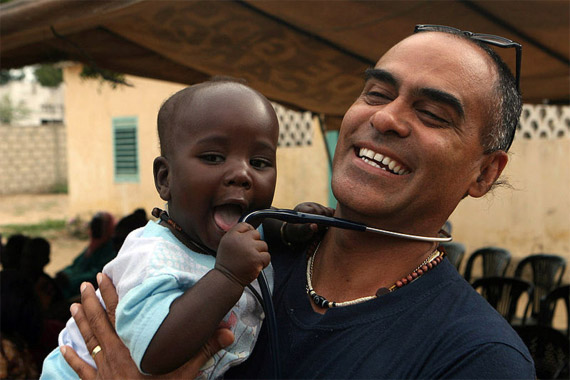
|U.S. Marine Corps photo by 2nd Lt. Nicole P. Teat

